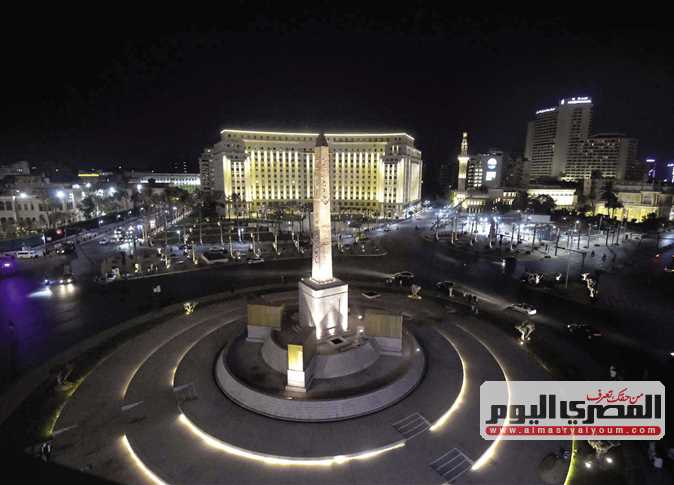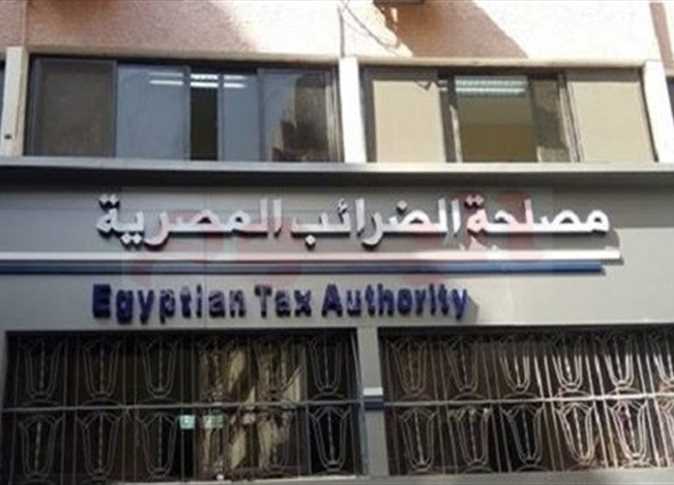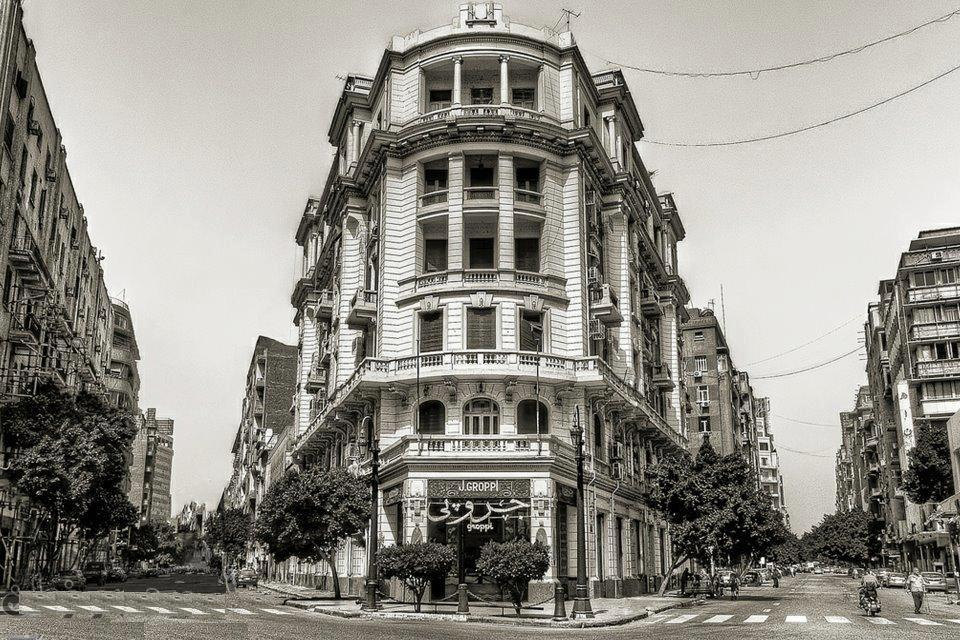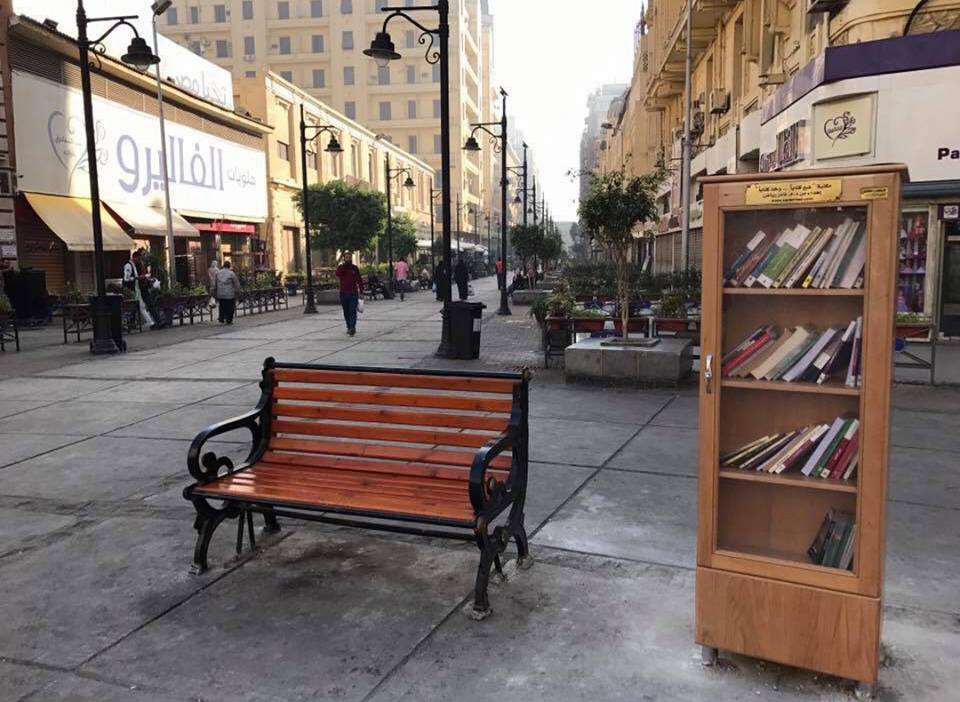All types of women can be seen strolling along Downtown Cairo’s bustling streets: young girls in colorful veils and matching tight jeans, middle-aged women dressed in more conservative attire, and women completely hidden under dark niqabs.
They all partake in Downtown’s culture of consumption: stopping at shoe stores to glance at their flashy and crammed shop-windows, entering pastry shops to enjoy a rapidly melting mango ice cream, and, of course, visiting Downtown’s numerous lingerie shops.
Most of these 20 something shops are scattered throughout Cairo’s busiest downtown streets, offering a range of items from tacky-colored fishnet baby dolls, to leatherette bras and panties, to vaporous nightgowns with feathers and laces attached. For some, these shops showcase the decaying aura of a socially liberal Downtown Cairo that attracted intellectuals and the literary elite. But for others, they embody an unspoken openness in contemporary Egyptian culture.
“The fashion this season is aubergine-colored lingerie, but we also sell a lot of turquoise and red items,” explains Mona, a sweet-looking saleswoman, while fixing a strand of hair sticking out of her striped veil.
Surrounded by thousands of pinkish boxes that contain amazingly sexy outfits, she goes on saying that “all kinds of women do their shopping here, even conservative ones and women wearing the niqab.”
Talking to the costumers–mostly married women, young brides and engaged couples–radically undermines the contradiction we may think exists between dressing modestly in public while unreservedly pursuing sexual desires behind closed doors.
A young man is leafing through dangling silky nightgowns with his fiancé, trying to choose a promising model in which he will garb his future wife. He looks puzzled when asked what motivates him to buy such a fluffy item. “I don’t want my wife to be dressed in an old rotten nightgown for our honeymoon!” he says, before turning back to touch the vinyl red gown they finally agree on. The fiancée barely flushes at this remark and boldly asks the saleswoman to find her a fitting leatherette mini-skirt with a matching bra.
In “Moundiana”, another lingerie shop situated at the corner of a pedestrian alley close by, Hassan welcomes customers with a slightly crooked smile from behind the cash register.
The two-storey shop offers a typically Cairene gradation, from shapeless pajamas smeared in cheesy drawings on the ground floor to fantastically erotic cable-like underwear on the first floor.
“Where is the contradiction?” he asks, visibly surprised. “Women in Egypt can wear whatever they like at home, this is freedom,” he continues, adding that a good portion of his clients are very traditional. “Of course, in the West women wear mini-skirts in the street, so they do not feel the need to have such sexy underwear,” he adds.
“Plus, we purposely use headless mannequins because they don’t look like real women and are not that sexy,” he adds, pointing at a glossy and almost bare plastic bust nearby. In the display window of “Moundira,” a bra in leather, nails and steel chains stands out amidst the overwhelming red fishnet and butterfly-shaped G-strings, but no one seems to pay attention.
Outside, passers-by peek briefly at the mannequins in voluptuous and transparent underwear and go their way, seemingly untroubled. “We never really had serious problem with the Muslim Brothers,” explains Hassan. “There could be a “haram” issue or two addressed at my shop from time to time, but in general lingerie shops downtown have completely blended into the landscape, and nobody cares anymore.”
Fatma Zahra, the dynamic owner of a lingerie shop called “Irma” on Mohamed Farid Street explains that “sexy has become acceptable for the past 10 to 15 years, and it came along with the opening of Egypt to the outside.” The sexiest underwear available at her shop is displayed in the shop-window, while the inside of the store is beautifully old-fashioned with rows of wooden drawers.
“All the lingerie fabrics are from greater Cairo, mostly from the el-Obour market, and all the items you find downtown are produced locally,” she explains.
She confesses that sales have been low this year due to the global economic crisis, and that a rising number of women are looking for poor-quality and cheap underwear instead of purchasing from more upscale shops.
“But I haven’t noticed a change in the type of clientele over the past years,” Zahra says smiling. “Many are still are veiled or wear niqab, but are proud to say that at home, they wear whatever they please!”




